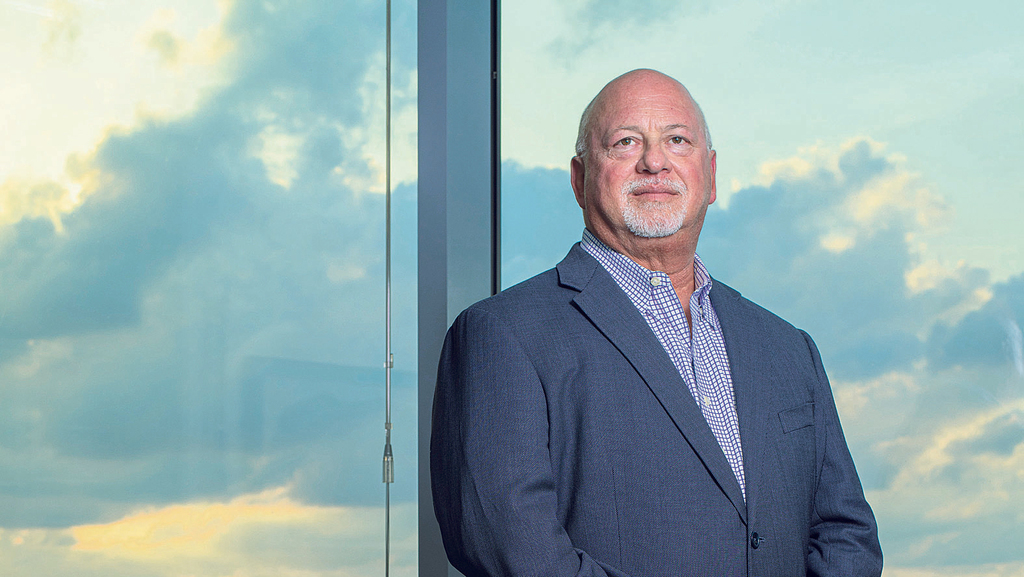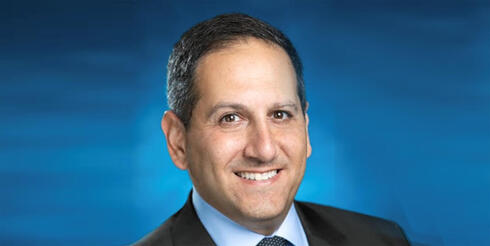
“Large global food-focused companies are looking to Israel for acquisition and investment opportunities”
American investment bank Stifel opened a representative office in Tel Aviv at the end of 2019, just prior to the markets being shaken up by the coronavirus. Since then, the bank has been involved in over 40 transactions involving Israeli companies totaling over $22 billion in aggregate value. "The capital raises of Israeli companies in foodtech can jump 10-fold to large raises of $100-300 million," said Vice Chairman of the bank, Ben Plotkin
"There is great competition from other foreign banks, especially from the big eight, including Morgan Stanley and Goldman Sachs, but their focus is on mega companies and transactions that are worth many billions of dollars. Our core focus is on middle-market companies that have values of up to $1.5 billion; companies that the big banks don't pay as much attention to as we do."
So what do you expect to accomplish here?"To date, we have exceeded our own expectations. We operate in the fields of technology, healthcare, financial services and consumer and other sectors. We made a large push with fintech and now with foodtech as well, and we are looking to expand our Israeli coverage into additional sectors. We have the ability to extend the local branch all the support it needs to make it successful. We’re not a small force. We acquired two investment banks in Germany this year because we think that local presence is important. The same is true of Israel."
What potential have you identified in foodtech?"The capital raises of Israeli companies in the foodtech field has jumped from an average of $10-$30 million to huge capital raises of $100-$300 million. These are companies with leading R&D that solve important global issues, and fast. The large global food-focused companies are looking to Israel for acquisition and investment opportunities. So a company like Aleph Farms easily raised $100 million from one of the world's leading consumer focused investment funds, L'Catterton. Aleph is not the only one. Other foodtech companies in Israel are also currently raising hundreds of millions of dollars from food companies and other large investment funds."
This tide of investments is not limited to the foodtech field. The high-tech industry as a whole is boiling and there are companies worth billions of dollars and tens of billions of dollars with revenues of only a few million dollars to tens of millions of dollars, and with no profit at all to show for. Are these values realistic?"There’s a lot of liquidity in the world that is pushing up valuations. I’ve been at the firm for 35 years and I’ve seen cycles in my life. What goes up also goes down, and when interest rates go up, the valuations will go down. You never know when it's going to happen, but it's definitely going to come, because the market is at very high levels right now. A lot of people in the market pinch themselves and ask if the values we see are real. At some point, that's going to change."
In the meantime, it's having a positive effect on your activity."That’s right. When the valuations go up, transaction activity goes up. And yes, our success rates go up when there's so much money in the market looking to do deals. It’s really a lot easier to raise capital today. Sometimes this strong demand results in an oversubscription of 6–10x the deal size being offered."
How do we know when the crisis or correction will arrive?"Once the yield on U.S. government bonds exceeds 2% for a relatively prolonged period, it's a sign that the pressure will begin," he said.
"Because of the liquidity, companies prefer to remain private" There are already noticeable fluctuations in government bonds, which Plotkin identifies as a significant marker for the future, but the initial public offerings market (IPOs) continue to enjoy a very good period. "The previous year was the year of the SPAC," agrees Plotkin. "Now this tool is experiencing a crisis and people are going back to traditional IPOs. Since a SPAC is ultimately just a tool for public offerings, when there are difficulties with it, you go back to the traditional IPO." What mistakes have been made in the SPAC market?"There were too many SPACs that were raising too much money. There were sponsors, namely the founders of the SPAC, who were greedy and took too much of the pie. In addition, there were 500–600 SPACs who raised more or less at around the same time and were looking for acquisition targets in parallel. Many of the transactions were not very high quality and the cut that went to the SPAC sponsors was disproportionate to the size and type of the transaction.”
Will this phenomenon disappear?"There will always be a place for alternative offerings such as SPACs. Three factors are involved in this story— the shareholders of the company that is to be merged with the SPAC, the SPAC’s sponsors, and the SPAC investors. The scales were previously leaning in the favor of the shareholders side, then they used to be in favor of the SPAC sponsors and now it’s starting to rebalance. Investors have learned to say to SPAC sponsors that they need to reduce their share, otherwise these investors will not participate in the investment. The PIPE investors, those who make the investment after the company that will be merging with the SPAC is known, want to get their portion of the pie as well, and not a small one. As an investment bank, one of our roles is to create that balance and get a good deal that works for everyone.”
Given the high liquidity, do companies now prefer to carry out private capital raises or are they actually being pushed into public fundraising?"Previously, the value of companies at the time of a public capital raise was significantly higher than values assigned to them in private capital raises. Today, because of elevated liquidity levels in the private markets, companies prefer to remain private and receive high values as part of the private raises. Therefore, those who want to quickly become a public company choose the SPAC route. However, a lot of companies follow a dual-track, or multiple paths in parallel and delay their decision as to either IPO or SPAC at the last minute."
Still, not all IPOs succeeded. Were there any deals in which you've failed?"Our success rate has been very high. We have succeeded in virtually all deals that attempted to execute. Today there is a process to first Test The Waters (TTW), in which the company performs preliminary checks with investors regarding investor interest and price discovery after the prospectus is submitted, and then decides whether to proceed or not. If they decide to go with the public offering, then the road show begins."
You're wearing an investor hat, too. You have invested in the Israeli crowdfunding platform OurCrowd."We made a significant investment in the company's general partner, with Stifel's nostro funds. I also sit on the board of directors of the company. Through this partnership with OurCrowd we have also joined in on some of the investments they have made. We have a large wealth management business with one million accounts that manages $400 billion, accounts with demand for such investments."
Related articles
"No comment."
A lot of companies have raised a lot of money, and they're looking for acquisitions. It seems that now that the SPAC fever and public offerings have calmed down, there is an awakening in the field of mergers and acquisitions. According to Plotkin: "There’s a connection between these two things.” So much money has been raised by companies from the recent wave of capital raises, and so these companies are looking to make acquisitions. And for good reason. We help a lot of companies find targets to buy. At current pricing levels, entrepreneurs at small companies are looking to sell. There are also larger companies that sell entire divisions, such as Amdocs.” Keter Plastic has postponed its IPO on NASDAQ, does that signal that traditional companies are less likely to IPO at the values they desire?"People are looking to invest in growth companies. Those who can demonstrate revenue growth are getting higher multiples today. Investors are increasingly looking for companies with revenue growth versus companies that have higher operating income. When interest rates rise however, it will be reversed, and then it will be the time for value companies, which generate cash flow and have a stable customer base."
How did you work throughout the Coronavirus period, which will soon reach two years?'I love sailing, so I’ve been out at sea a lot and I’ve been zooming in on the go. There were situations where the other zoom meeting participants suddenly asked me 'say, are you on a boat?'. Zoom changed everything. We completed 40 transactions in a year and a half with an aggregate value of over $22 billion, all on zoom — from the living room or from the balcony. There were deals we made over zoom from start to finish, without people meeting in person. As a result, in-person meetings and travel likely won't go back to what they were. You used to have to run around for 9-10 days on a road show and fly from Denver to Boston and then to New York to give presentations. Today in two days of zoom the whole road show is complete. There are some Israeli companies whose management went to New York to meet investors, and the investors preferred not to meet in person, so the meeting was done through zoom, and that's when the Israelis were in New York! The Americans who live in New Jersey don't even want to go to Manhattan for a meeting."

